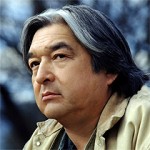“But Wayne, how did you get into this?” Perhaps this question came from my wonderment at a quiet man going into retail in the first place – and not just any sort of shop, but one selling original paintings, sculptures, stained glass, woodworking and pottery. I’ve been in the Ethel Curry Art Gallery many times over the past couple of decades, as family ties have drawn me regularly to the small northern Ontario town that is its unlikely host.
I’m a small town boy, and I love these places, but they’re not noted for their devotion to and support of the arts, if I may risk a generalization. Haliburton, about three hours northwest of Toronto, is a pretty little place, perched by a lake and surrounded by wooded hills. The surrounding county of the same name, bordered on the north by Algonquin Park, contains an absurd number of lakes and a surprisingly large roster of artists among its 16,000 citizens.1 One of them was Ethel Curry, whose nephew Pete owns a woodsplitter and a small retail building in Haliburton village. Wayne is a woodworker, and as he tells the story, it wasn’t long before conversations about wood led to others about art and display space which led, 18 years later, to him explaining the genesis of the gallery to me. Again: the whole thing thrills and bemuses me, and I can’t believe it’s around the corner from Jug City convenience and the “Aprons and Soaps” shop. And how does a veteran of African development work, a confirmed loner, dog-lover and crafter of meticulously detailed model ships and other wooden delights, become the owner of an art emporium about an hour south of Nowhere?



